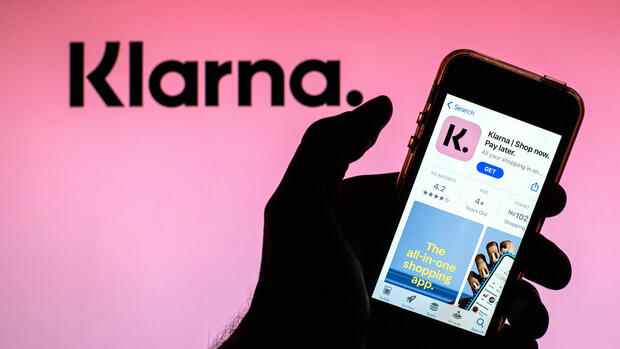Frankfurt, Brussels The EU is striving for stricter rules for mini-loans and buying in installments when shopping online, in technical jargon “buy now, pay later” (BNPL). The consumer credit directive, which is currently being revised, is to include provisions for mini-loans and for delayed payments. The trialogue in which the Commission, Parliament and the Council of the 27 member states agree on a common legal text began on Thursday.
Among other things, the proposals for the amended directive provide for more types of credit to be covered by the directive. This applies, among other things, to mini loans with a volume of less than 200 euros and BNPL loans.
However, Parliament and the Council each propose that there may be exceptions in certain cases, which the EU states can decide in each case. The law is not a regulation anyway, but a guideline. This means that it does not apply directly, but must be transposed into national law by each member state. There may be deviations, depending on how specifically the requirements are formulated in the guideline.
Top jobs of the day
Find the best jobs now and
be notified by email.
Malte Gallée, the responsible shadow rapporteur for the Green Group, is nevertheless satisfied with the parliamentary proposal. “There will definitely be a measurable improvement over the old policy,” he says. “The new directive will protect more consumers than before. We have to make sure that people who can’t afford a loan don’t get it either.” Now the credit check is being extended “to almost all loans,” says Gallée. “Anything that looks like a loan should be treated as a loan.”
The tightening also targets BNPL providers like Swedish company Klarna, which earn part of their revenue from overdue fines, Gallée said. They would have built their business model on the over-indebtedness of their customers.
>> Read here: “Something’s brewing” – Schufa warns of increasing over-indebtedness
Criticism of the booming BNPL business has recently grown. Buying by installments when shopping online is an alternative to using the often expensive credit card for many consumers, especially in the USA. But there are increasing signs that everyday purchases are being financed in this way, even in Germany.
The credit agency Schufa, which belongs to the German banks, points to a significant increase in BNPL financing – and to dangers. “BNPL is indeed a trend. There is a structural upheaval in the lending business,” said Schufa boss Tanja Birkholz recently. Part of the character of BNPL is “that I order something that I may not be able to afford at the moment”.
criticism of possible exceptions
Consumer advocates are generally skeptical about mini loans. Johannes Müller, financial market expert at the Federation of German Consumer Organizations, points out that the position of the Council and Parliament gives the EU states the option of not applying certain requirements to loans of less than 200 euros, for example.
Consumer advocates also see dangers in mini loans.
(Photo: imago images/Westend61)
“We see a danger for consumers in the omission of the information requirements, in that they are not given an explanation of the actual type of credit and do not have a clear overview of costs,” he says. Schufa is also in favor of mini and short-term loans being covered by the directive in the future.
In the European Parliament, the Commission’s proposal was watered down at the instigation of the conservatives. There are a number of exceptions, including loans for internet-enabled devices. Mobile phone contracts, for example, should not require a credit check in the future either. According to the parliamentary proposal, loans that are interest-free and also do not provide for late payment interest are also excluded.
From the point of view of Andreas Schwab (CDU), spokesman for the EPP Group on the internal market and consumer policy, the new version of the directive nevertheless strengthens consumer rights in the credit system. “As EVP, we protect consumers by improving processes and procedures instead of forcing consumers to provide more information: This has avoided an additional paper jungle that neither educates consumers better nor allows banks to better check creditworthiness.”
The revision of the directive strengthens consumer rights in the credit system.
(Photo: IMAGO/Future Image)
According to Schwab, on the one hand, small interest-free loans should continue to be easily possible, so that consumers, for example, can continue to pay for their new cell phones in installments without a credit check. “On the other hand, we protect consumers by bringing ‘buy-now-pay-later’ models, where interest or fees are due, into the scope.”
Klarna was calm: Klarna strongly supports the regulation of the BNPL sector. It is important that regulation protects consumers and not banks. In fact, only a few banks play a role in the BNPL market. “We carry out a strict credit check on every purchase so that we only lend to those who can repay us.” Klarna restricts access to its services after missed payments to prevent debt accumulation.
However, investors are also reluctant to do so, including with regard to other payment companies. After a round of financing in the summer, Klarna’s valuation dropped to $6.7 billion. Klarna was previously valued at almost $46 billion as the most expensive unlisted start-up in Europe.
More: Trailing behind Paypal: Paydirekt processed just under 18 million transactions in 2021
